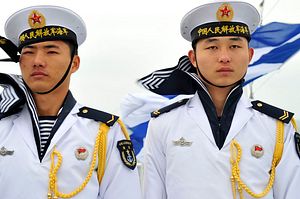There are both modern and historical parallels to be drawn in the wake of China’s strident rejection of the Hague Tribunal’s ruling on its territorial claims in the South China Sea.
In its relentless strategy of using power to expand China’s territory in the South China Sea, the Xi administration has been likened to outlaw groups such as the yakuza. In the same way that yakuza think that enlarging their turf leads directly to increasing their interests, the Xi administration believes that “expanding China’s territory leads to expanding its national interests.”
Fundamentally, this is a “zero-sum” mindset: China gains at the expense of other countries. As Japanese journalist and commentator, Yukihiro Hasegawa, correctly argues, it is completely different from the mindset of democratic countries such as those in the EU and Asia-Pacific states such as Australia and the United States, which understand that the global order is maintained by relationships of mutual dependence – the “win-win” mindset. This holds that the prosperity of individual countries can only be realized if others also prosper, hence the value placed on mutually beneficial and peaceful relations.
China does not share this understanding: it does not place primary value on maintaining mutually dependent relations with other countries. Indeed, quite the reverse: if other countries are weak, this presents an opportunity to expand its territory. This is precisely what China has been doing in the South China Sea. It is only Japan’s military strength and the deterrence that the U.S.-Japan alliance provides that prevents the same kind of Chinese nationalization of waters in the East China Sea, including the Senkaku Islands.
Moreover, in just the same way that it is pointless to preach to the yakuza to obey the law, it is equally fruitless to appeal to China to obey the UN Convention on the Law of the Sea. The Xi administration does not believe in the rule of law – it believes in power. If China’s recent response to The Hague Tribunal’s verdict teaches us anything, it is that a strategy of countering power with rules fails in the case of “lawless” countries. Power can only be countered with power.
Hasegawa’s historical analysis is equally illuminating. He likens China’s current trajectory to Japan’s in the 1930s. Japan would not agree to the report published by the Lytton Commission, which investigated the cause of the Japanese invasion of Manchuria for the League of Nations, and subsequently left the organization in 1933. According to Japanese historian Minoru Kawada, an influential view in the Japanese Army at the time held that the League wanted to “shift international society from a world ruled by ‘power’ to a world ruled by ‘law.’” However, because the League lacked the power to enforce the rule of law internationally, world war became inevitable if Japan’s expansion were to be checked. Small, armed conflicts eventually led to full-scale conflict.
The conclusion to this analysis is depressing: China has now reached the point where Japan was back in the 1930s. Power will be the determining factor in areas of potential conflict such as the South China Sea because Japan, the United States, and other allies do not have the authority to make China adhere to the rule of law. Hasegawa’s conclusion is that as “history repeats itself,” China has also started on a path that can only be blocked by the use of military force.
Aurelia George Mulgan is professor of Japanese Politics, University of New South Wales, Australian Defence Force Academy, Canberra, Australia. Her latest book (co-edited with Masayoshi Honma) is The Political Economy of Japanese Trade Policy (Palgrave Macmillan 2015).

































